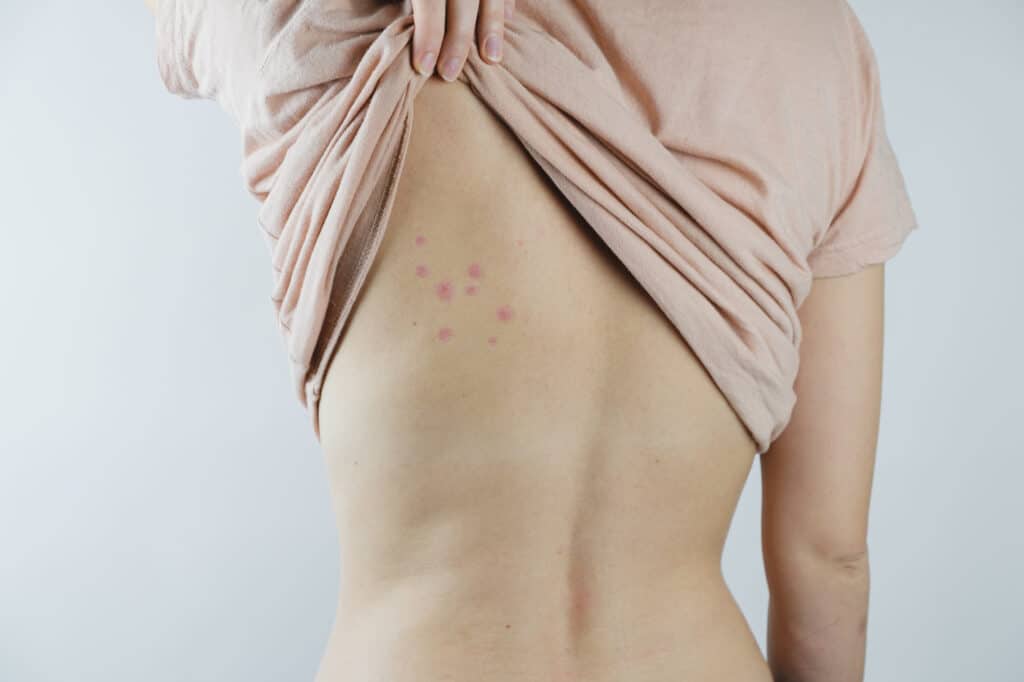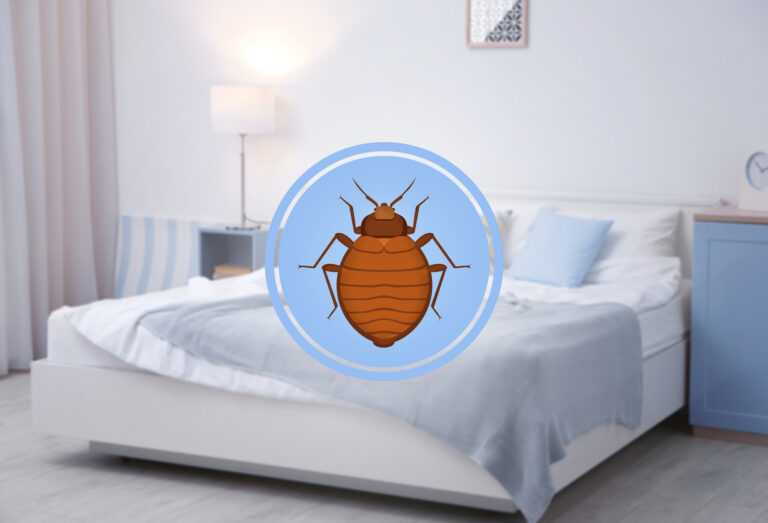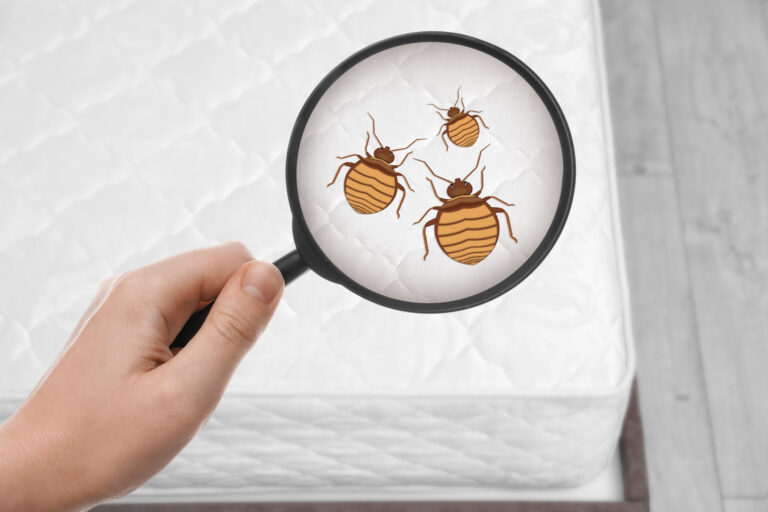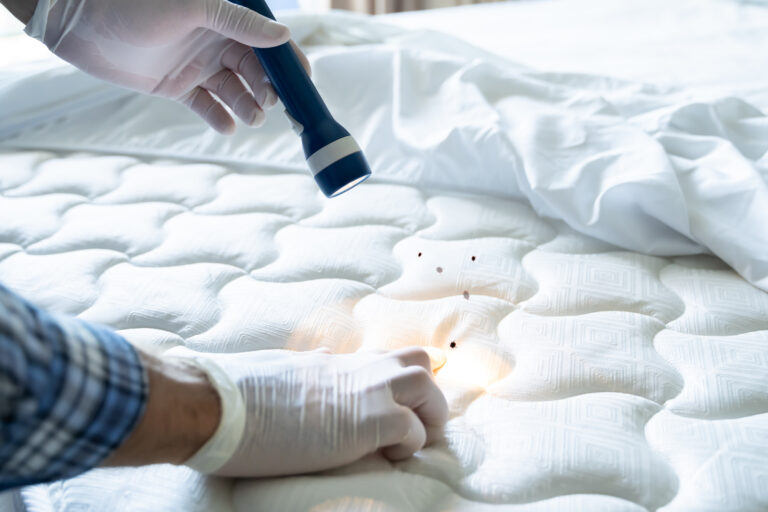Bed bugs are a common problem, but they can be hard to deal with if you need to know what you are looking for. This guide will help you understand the signs of an infestation, so you know when to call the experts.
What are bed bugs?
Bed bugs, or Cimicidae knew, are tiny insects that feed on the blood of humans and animals. You can find them in mattresses, box springs, under wallpaper, furniture cracks, and curtains folds. Bed bugs can be hard to detect at first glance because they are only about 1/4 inch long. But their bite is painful enough that you may notice it itching after being bitten repeatedly by one.
Bed bugs have been around for thousands of years. However, over time, we have developed ways to control them, such as pesticides applied directly onto surfaces where they hide (such as mattresses).
Where Do They Hide?
Bed bugs are sneaky little things. They can hide in a variety of places, including
- Beds and bed frames
- Mattresses, box springs, and other bedding materials
- Behind headboards
- In furniture, cracks, and crevices.
They also like to hang out in electrical outlets, behind wall hangings (especially those made of cotton), and behind carpets (if you have one). They can also be transported from one location to another when an infestation spreads from one home into another using infested luggage or clothing items brought back from travel abroad.
How quickly can bed bugs spread
- The size of your home or apartment
- How many people live there
- Where their hosts sleep at night (on a mattress)
Bug Bite Symptoms
If you think bed bugs have bitten you, the first thing to do is look for tiny bites on your skin. Bed bug bites are usually tiny and may take a while to develop into larger, more noticeable welts. They can be hard to see because they appear as small red dots or small bumps that often resemble mosquito bites.
If you notice any of these signs:
- Redness and swelling around the area where the bedbug bite occurred;
- Swelling at the site of an existing wound;
- Painful redness can last longer than two days after the bite.
What do bed bug bites look like?
Bed bug bites are usually in a straight line but don’t always follow the same pattern. Some bites are grouped, and some are spaced out. The most common practice is for them to be evenly spaced all over your body—on arms, legs, face, and even head!
Bed bug bites can also appear in rows, but this is only sometimes true. Sometimes they show up on one spot of your skin before spreading throughout your entire body later.

How to prevent bed bug bites?
- Get rid of second-hand furniture and mattresses. These items may contain bed bugs because of improper treatment before being sold to you.
- Don’t leave your luggage on the floor overnight. Bed bugs hide in clothing and other things you wear around the house, so keep them out of your luggage after every trip!
- Don’t allow pets into the bedroom either—they could bring in bed bugs from outside, where they spend most of their time anyway!
Signs of a bed bug infestation.
If you are worried about a bed bug infestation, some telltale signs help determine whether your home is crawling with them. Here’s what to look for:
- Small blood stains on sheets or mattresses—Bed bugs may leave their feces behind and shed skin as they mature into adulthood. If you find small blood spots on your sheets, this is a sign of infestation in the past.
- Live bed bugs or their eggs. Depending on the length they have been inside your mattress, they will likely be dead and buried deep in their fibers. This means they won’t be easy to remove without specialized equipment like vacuums and heaters.
Are bed bugs dangerous?
Bed bugs are not dangerous. They do not spread disease and are only interested in blood for nourishment. The bites themselves may be painful, but the risk of infection is shallow.
Bed bugs can cause skin irritation in some people by biting during feeding time—a condition called dermal myiasis. Dermal myiasis is also known as “feeding frenzy” or “bed bug bite fever.” It happens when bed bugs are hungry and go on a feeding frenzy while looking for a new host to feed upon! This can occur when you have an infestation that has been going on for several months or years.
How to get rid of bed bugs
There are a few ways to get rid of bed bugs, but before starting that process, you will first have to ensure all the items in your home are clean and safe.
- Wash everything down—clothes, linens, and furniture. Use hot water and soap while scrubbing with a brush or sponge until they’re free from dirt and debris.
- Next is vacuuming your rooms thoroughly with an attachment designed for this purpose (like a vacuum cleaner).
- If possible, try not to touch anything else in the house after cleaning, as this will spread any bug eggs or larvae around other places where they might hide undetected.
Are there any home remedies for bed bugs?
If you think you have bed bugs, here are some tips to help find them:
- Check all Ziploc bags before leaving the house with your belongings. If eggs are in any bags, discard all contents immediately after inspection.
- Check any item recently purchased from a store or online retailer for signs of infestation (eggs) by placing it outside on a sunny day for about 24 hours.
Bed Bug Prevention Tips
- Use a mattress cover.
- Use bed bug spray. Bed Bug sprays are the most effective way to kill adult and nymphal bedbugs and their eggs and young stages (eggs). The best option will depend on your needs. Some people may prefer liquid insecticides, while others may choose powders or gels that they can apply directly to their mattresses or furniture pieces.
- Use a trap/oozing agent (bedbug interceptor). Traps work by attracting adult male bedbugs but not female ones.
Knowing what signs to look for lets you know when to call in the experts.
Don’t try to treat your infestation yourself—it’s not safe. It can be very risky, especially if you are dealing with bed bugs in the United States (or anywhere else).
If you live in Atlanta, GA, and notice any signs of bed bugs at your house or apartment, call Atlanta pest control for bed bugs today! We offer treatment for bed bugs in Atlanta, GA, as well as preventative services that will help you keep these insects away in the future. Our treatments include fogging, steam treatments, and more. Call us to get more information about our services or to help eliminate those little critters.
Take precautions
We hope this guide helped you understand some of the most common signs that your home may have a bed bug infestation. Remember, though, that not every sign is a cause for alarm. The best thing to do is take precautions before calling in an exterminator and ensure your home is spotless before reentering it.






